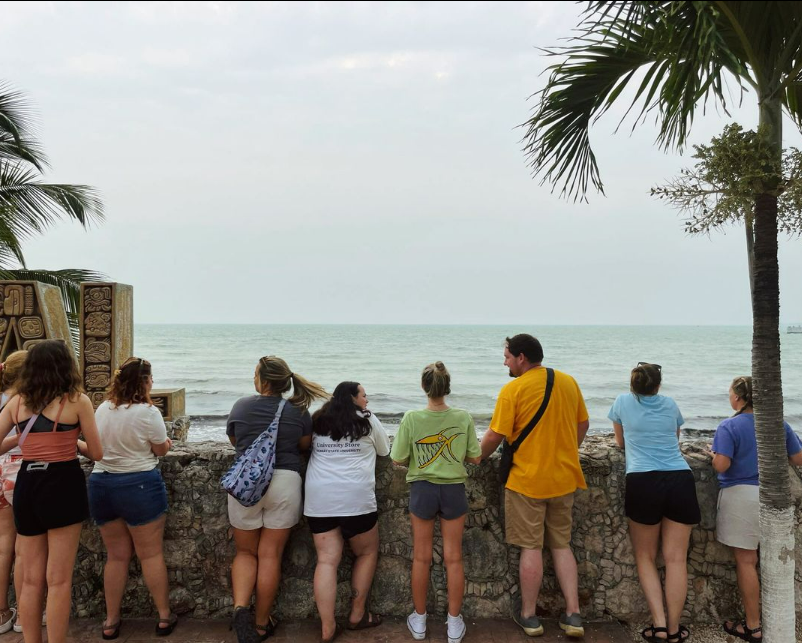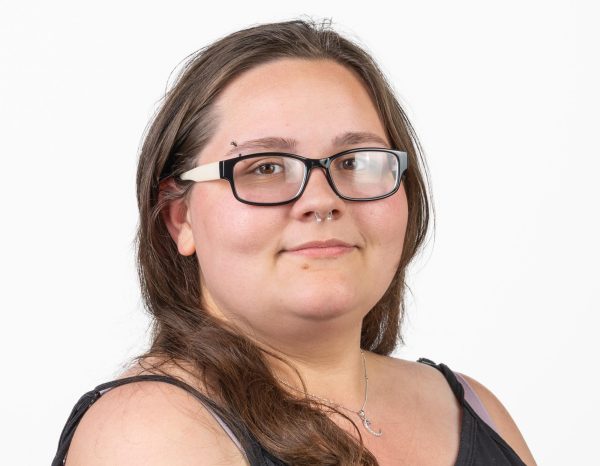Under the slogan ‘Get out of here!’ Education Abroad offers students the opportunity to explore different cultures and traditions while acquiring college credits. However, what does this process actually look like, and what do interested students need to know before they prepare to set sail?
For students enrolled in the Honors College wishing to acquire an Honors Diploma, studying abroad is a requirement, but for other students, it is an optional opportunity to see the rest of the world. For most students, studying abroad starts on the application website that hosts the study abroad programs offered, giving students the chance to weigh their options before ever meeting with an advisor. From Dublin, Ireland to Daegu, South Korea, there are hundreds of programs offered, from faculty-led to exchange programs; the options are endless.
Emma Roach, Education Abroad student worker, said most students go abroad during the summer term and choose shorter programs.
“Our students at Murray tend to gravitate towards the one- to two-week options; particularly, they like the faculty-led programs hosted through Murray State, Kentucky Institute for International Studies (KIIS) (provider at WKU), and the Cooperative Center for Study Abroad (CCSA) (provider at WKU),” Roach said.
Something that appeals to most students is the opportunity to go abroad with a known professor, someone within their department. Faculty-led abroad programs are only one of many types but harbor a significant amount of student interest.
Marcie Hinton, professor and study abroad ambassador, said she considers studying abroad to be the best kind of education.
“My best advice for students interested in studying abroad is (to) talk to their adviser, to their department study abroad ambassador or the advisers in study abroad early in their career, so they have the most options for when, where and what they want to study,” Hinton said. “The world is their oyster the earlier they plan. You can study abroad for a semester or even a year and still graduate in four years if you plan early.”
There are many reasons students hesitate to study abroad, with two of the biggest being time and financial constraints.
Jenna Wethington, freshman agriscience technology extension/leadership emphasis major, said she plans to go abroad but will likely have to go on a shorter program because of her commitments at home.
“My main thing is, I have started my own farm, and I’d feel really bad (leaving it for so long),” Wethington said. “I live four and a half hours (away), so I go back about every other weekend to work on it. It’s not fair to my brother or parents to do the farm that I started.”
Students hesitant to study abroad also cite strict graduation timelines and financial concerns. A reality students should expect is they will be funding some of the trip themselves, as study abroad scholarships rarely cover the entire cost and are not guaranteed. While some Murray State and federal scholarships can help cover the trip, not every scholarship is applicable.
If you are interested in studying abroad and are unsure where to start, visit https://www.murraystate.edu/academics/StudyAbroad/index.aspx. This site provides information on a broader range of topics and links to more specific information and resources.



























































































